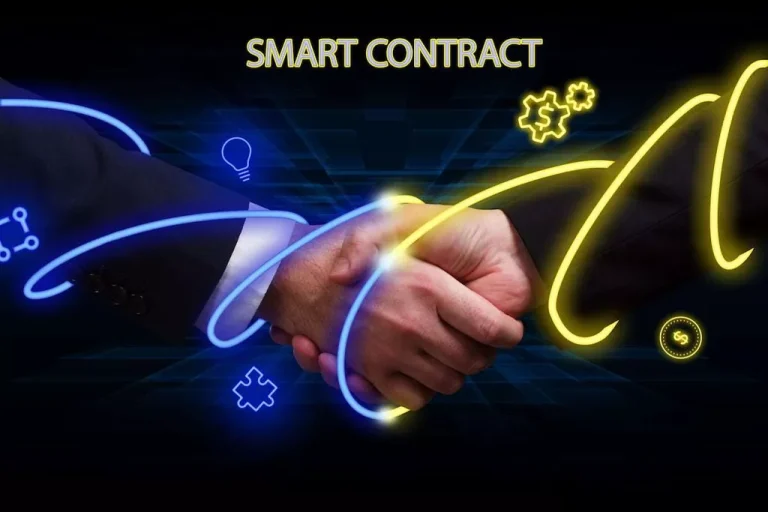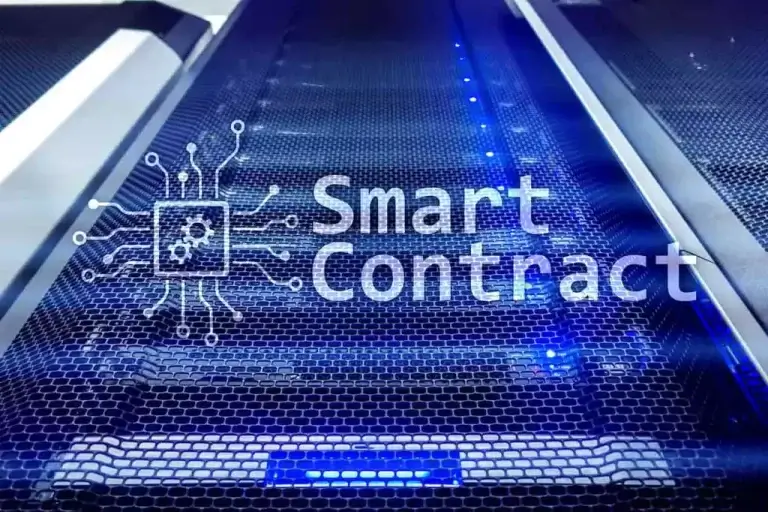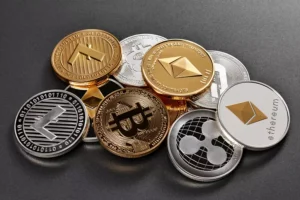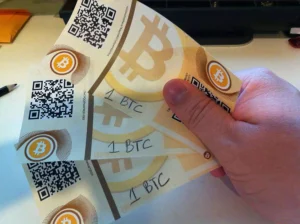Nowadays, digital alterations are the fundamental drivers of economic growth as digitalization picks up speed. One of the effects of digital transformation is smart contracts. It is a computer system that, based on mathematical procedures, autonomously carries out activities with full-on control over their execution, according to American scientist and cryptographer Nick Szabo.
The technology first surfaced not long ago, with the advancement of blockchain technology and the surge in popularity of cryptocurrencies. It is going upscale as people worldwide hear about its benefits and witness it themselves. With the headway of IT technologies, a brand-new sort of contract – smart contracts – has come to life.
In the article, we’ll look into this innovation’s most pivotal subtleties to better understand and keep up with modern trends.
What Is a Smart Contract?
For starters, let’s figure out what is a smart contract. It is an agreement written in computer code that can solely be completed, altered, or terminated with the assistance of a specific software. They are growing more common because they make the days of their signatories easier by automation. They are built on blockchain technology, allowing transactions without financial institutions’ involvement. As a result, the parties to a crypto smart contract must select an environment to conclude the form of agreement. Ethereum, Polkadot, Ripple, and Tron are the most well-known smart contract examples.
Let’s look into the top elements of these agreements:
- The parties to the agreement who have a digital signature approve or disagree with the product or service’s adherence to the previously established conditions.
- The contract’s subject matter is the delivery of products or services in exchange for money.
- Conditions under which the automated product exchange will occur, like the supplied product’s conformity with quality requirements. A thorough mathematical description is required.
- A decentralized platform where the algorithm (program code) is produced.
These contracts came into everyday use with the debut and evolution of the blockchain. Consequently, decentralized systems established a beneficial setting in which contract execution did not rely on other parties, and its code could not be arbitrarily modified.


Turnkey Brokerage Solution For Your Business
Get the most profitable fully licensed fx/crypto brokerage software or ready-to-operate business in 48 hours. Best-in-class web & mobile trading platforms, sales-driven CRM, full integration with MT4/5, and 150+ payment providers.
How Do Smart Contracts Work?
Basic “if/when…then” statements recorded in code on the blockchain act as a foundation of how smart contracts operate. When preset criteria have been satisfied and validated, a network of computers takes action. These can include issuing money to the right people, registering a car, sending alerts, or writing a ticket. The blockchain is updated when the transaction is finished. It indicates that the deal is final and that only persons with permission may view the outcomes.
Developers may use digital contracts to construct various decentralized apps and coins. They are applied in anything from brand-new instruments to logistics and games and are kept on the blockchain like any other cryptocurrency transaction. Once an innovative contract application is posted on the blockchain, it cannot be altered or canceled.
Smart contract-based applications are also known as “decentralized applications” since they use decentralized finance (or DeFi) technology to revolutionize the banking sector. DeFi apps enable users to participate in complicated activities like savings, loans, and insurance without the need for banks or other financial institutions and from anywhere globally.
Furthermore, it’s all-important to remember that self-executing contracts are often a form of account with the same privileges as user accounts. The only exception to the rule is contracts, whose accounts are handled by the code included within the contract and not by users.
It is significant because it enables interaction between smart contracts and blockchain users or DApps. To illustrate, we can transfer tokens to a smart contract to perform some other function or to exchange them for other tokens.

Benefits of Smart Contracts
Individuals, corporations and governments can reap countless benefits from transactions based on blockchain innovations and smart contracts. Here are a few examples:
- Transparency: One of the key advantages of decentralized blockchains lies in their total transparency. Every transaction is open to the public, and no one has the ability to alter the information stored on the network. As a result, both regular users and business owners can confidently create and use smart contracts without the fear of an attacker secretly changing them to steal funds or data.
- Monetary effectiveness: Another benefit is the ability to automate various manual business procedures involved in the execution of contracts. Moreover, you don’t need intermediaries like brokers, banks, or attorneys. These two elements make huge savings possible.
- Saving time and independence: A typical contract requires much time and work on drafting, monitoring, and managing its execution. Everything is easier and quicker since the contract’s code is only written once and utilized whenever required (to generate an NFT or automatically fill out and conduct transactions on a bill of lading).
- Outstripping the parties’ degree of trust: The human aspect is not considered while executing a smart contract. It assists in creating solid, long-term commercial relationships by increasing trust between counterparties. And if something goes wrong, the parties will not accuse one other of breaking the contract but will instead work together to determine what went wrong.
- Backup and storage security: Everyone constantly creates backup copies of crucial data since data loss is a severe concern among organizations, whether a corporation or a government institution. Even the most trustworthy backup programs cannot ensure that all data will be saved. They are easily breakable, theft- and breakable-prone. However, this is not the case with self-executed contracts because the data they contain is saved across several different gadgets (nodes) and won’t be lost unless the blockchain ceases functioning, which is quite rare.
- Fraud prevention: The contracts reduce the risk of unauthorized system access with correctly written code, eliminating fraud loopholes. Phishing is still possible, but the weakness may be addressed with time.
Additionally, smart contracts, just like cryptocurrencies, are known for using robust data protection and the highest level of encryption available in today’s IT industry. Such transactions have grown to be one of the safest ways to complete deals today.
What Are the Main Challenges Faced by Smart Contracts?
Since the blockchain infrastructure is still in its infancy and because there are substantial problems with the code, smart contracts are still far from ideal. In addition, there are countless holes in the legislative and legal framework governing these forms of agreement, developing programs intended to secure the connection between the virtual and physical worlds and to supply contracts with input data for their implementation. It makes it more challenging to incorporate these contracts into people’s and organizations’ everyday operations.
Smart contracts are sometimes less flexible than traditional agreements. Because the data entered into the blockchain cannot be modified in the future, it is critical to maintain the original information’s correctness and trustworthiness while avoiding mistakes while adding data.
Furthermore, many banks and prominent organizations hesitate to share sensitive data via open distributed ledgers. Moreover, the scale and transaction processing performance issues remain.
Problems arise from the automated process of contract execution since it cannot modify a smart contract or halt its execution if there are objective requirements. Another issue is the software code, which may include errors that may be presumed when entering data into the system and which, once again, cannot be changed.
Numerous developers are tackling these problems and restrictions, and various smart contract platforms handle them differently. The future will see many concerns and issues resolved, and companies will entirely shift from creating traditional contracts to their digital embodiment and even to their implementation with the help of artificial intelligence. Progress never stands still.
Smart Contract Use Cases and Applications
The list of the smart contract use cases goes beyond, but we’ll mention the most essential ones. It establishes the broadest area of use in nearly every sphere of human activity, directing it to declare specific rules and follow their execution.
Smart contracts are beneficial to organizations due to a variety of reasons. An electronic agreement, first and foremost, guarantees steady work, adherence to deadlines, and the fulfillment of duties by all parties. Second, they considerably reduce costs while also accelerating the work process.
The financial sector has the highest need for this technology. Surprisingly, more than half of all economic crimes are committed by current or former employees. As a result, banks are continually considering potential solutions to eliminate the human aspect, such as blockchain technology. Smart contracts can help to streamline these procedures, which is why large companies have begun to innovate in the area.
Smart contracts have the potential to transform the way we do business. They will make a significant difference by reducing red tape and enhancing overall aggregate efficiency. Moreover, they may assist many industries, including music, art, banking, retail, real estate, telecommunications, and supply chains. However, due to infrastructure restrictions, the true potential remains unavailable; it simply does not exist.
Their use in the Internet retail sector is an intriguing illustration of their practical use. Let’s say you want to buy something from an internet retailer. The smart contract will contain the details of the sales deal. Once you have received your order, the money will be sent to the seller’s account and recorded in the blockchain as payment for the requested item.
To cap it all, the key features of a smart contract are its automated execution when it comes to contractual relationships and the ability to verify an inevitable legal reality. Due to the lack of precise legal regulation, the smart contract is not the best tool to manage contractual interactions. However, there is no doubt that smart contracts will continue to exist. They are the foundation for a truly global economy and are available to anyone without barriers like hefty start-up fees or background checks.






